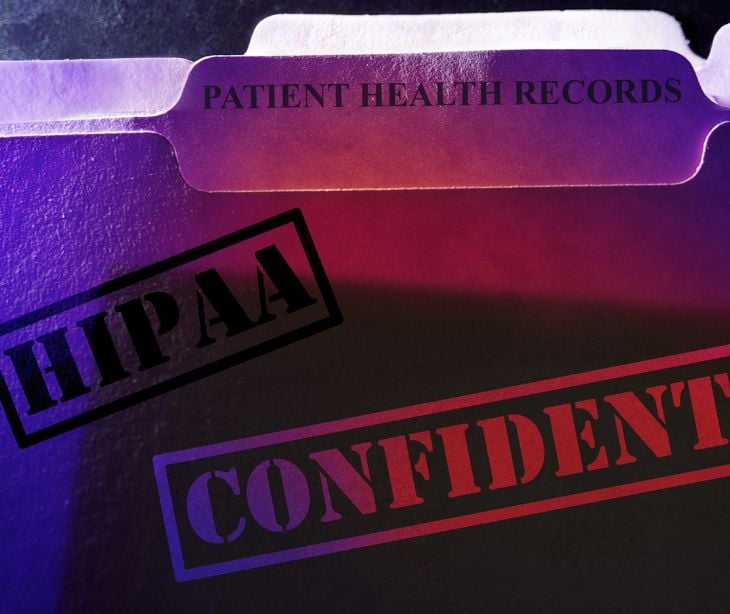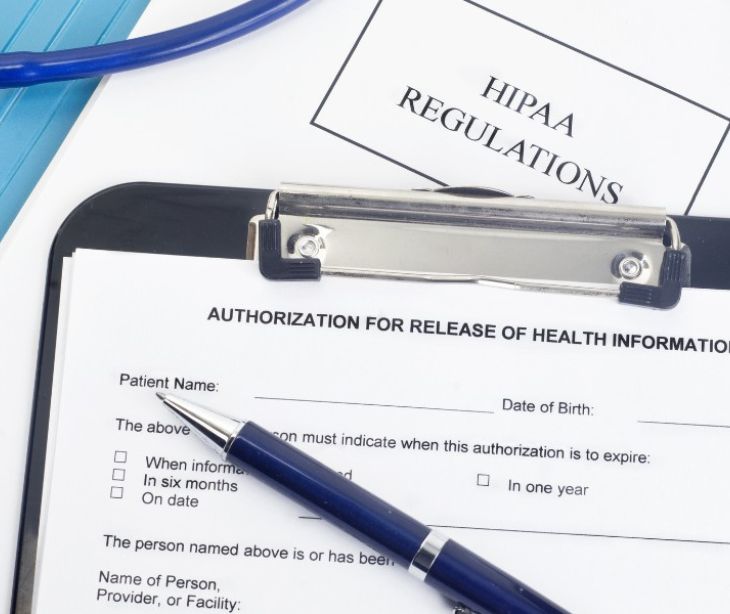
HIPAA applies to covered entities, as well as their business associates. They must be aware of the consequences of non-compliance because failure to adhere to HIPAA regulations can result in severe penalties, including civil monetary fines, criminal charges, civil lawsuits, reputational damage, corrective action plans, and potential loss of eligibility for government healthcare programs.
Related: HIPAA Compliant Email: The Definitive Guide
An overview of HIPAA
- Privacy Rule: HIPAA's Privacy Rule establishes national standards for protecting medical records and other personal health information. It empowers patients by granting them specific rights over their health data, including the right to access their records and control who can access their information.
- Security Rule: The HIPAA Security Rule focuses on electronic PHI. It sets the requirements for safeguards, such as access controls, encryption, and data backups, to ensure the confidentiality, integrity, and availability of electronic health information.
- Transactions and code sets: HIPAA standardizes electronic healthcare transactions and code sets to streamline administrative processes within the healthcare industry.
- Identifier standards: The law establishes unique identifiers for individuals, employers, health plans, and healthcare providers.
- Enforcement and penalties: HIPAA has provisions for enforcing compliance and imposing penalties for violations.
Related: Understanding and implementing HIPAA rules
The consequences of non-compliance
Civil monetary penalties (CMPs) associated with HIPAA non-compliance are structured in tiers, primarily dependent on the severity of the breach and the covered entity's awareness of the violation. These tiers can be outlined as follows:
- Tier 1: CMPs of up to $127 per violation are imposed for breaches not within the knowledge of the covered entity and were successfully rectified within 30 days of discovery.
- Tier 2: Breaches unknown to the covered entity but left unaddressed for more than 30 days following discovery may result in CMPs of up to $382 per violation.
- Tier 3: CMPs can reach up to $13,669 per violation for breaches known to the covered entity but not adequately corrected.
- Tier 4: The most severe penalties, with CMPs of up to $54,677 per violation, are reserved for cases where the covered entity was aware of the breach, failed to address it, and where willful neglect or substantial harm occurred.
Note: There are annual caps on these penalties, with Tier 1 capped at $25,000, Tier 2 at $100,000, Tier 3 at $250,000, and Tier 4 at $1.5 million.
Criminal penalties
Individuals may face criminal charges for serious HIPAA violations, leading to fines and imprisonment. Criminal penalties can apply to individuals who knowingly obtain or disclose protected health information (PHI) without proper authorization.
Civil lawsuits
In cases where privacy rights are violated due to HIPAA non-compliance, affected individuals can file civil lawsuits against the responsible entities. These lawsuits can result in monetary damages being awarded to the individuals who have suffered harm.
Reputation damage
News of a data breach or privacy incident can erode trust among patients, clients, and the general public. Real-world examples illustrate the lasting negative effects that breaches can have on an organization's relationships and business operations.
Corrective action plans
In addition to fines, organizations violating HIPAA may be required to implement corrective action plans. These plans are designed to address compliance deficiencies and require substantial time and resources to develop, implement, and monitor effectively.
Loss of eligibility for government programs
Healthcare organizations that are not in compliance with HIPAA risk losing their eligibility to participate in government healthcare programs like Medicare and Medicaid. This loss of eligibility can have financial consequences for the organization.
Steps to ensure HIPAA compliance
- Ongoing training: Regularly educate staff members on HIPAA regulations, ensuring they know their responsibilities and the potential consequences of non-compliance.
- Risk assessments: Conduct regular risk assessments to identify and mitigate vulnerabilities in your organization's data security and privacy practices.
- Policy and procedure development: Develop comprehensive policies and procedures that align with HIPAA requirements and establish clear protocols for handling PHI.
- Regular audits and monitoring: Implement regular audits and monitoring processes to identify and address potential violations and vulnerabilities.
Subscribe to Paubox Weekly
Every Friday we'll bring you the most important news from Paubox. Our aim is to make you smarter, faster.





